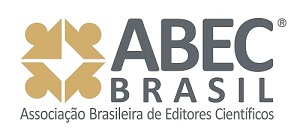EUPHEMIZATION OF THE TRAGIC IN THE SHORT STORY "A MARIA LIONÇA" BY MIGUEL TORGA
Keywords:
Tragic, Euphemization, Maria Lionça, Miguel TorgaAbstract
The tragic as a literary theme appeared in the dramaturgy from Ancient Greece. Over time, the Greek tragedy as a theme has reverberated in other literary genres. Based on the sad aspects of tragic narratives, we consider it relevant to investigate how the tragic is euphemized. Therefore, in this article our objective is to analyze how the euphemization of tragic occurs in the short story "A Maria Lionça" by Miguel Torga (1996), published in Contos da Montanha. The present investigation is justified by the limited number of studies in this perspective. We selected some excerpts from the short story to illustrate our analysis. The theoretical basis of our research, which is totally bibliographical, is based on studies about the tragic and the euphemism from literary perspective. We make use of theoreticians such as Ströngoli (2000), Szondi (2004), Lukács (2000), Machado (2005, 2006), Moisés (2013), Leal (2014), Nietzsche (1997, 2014), Oliveira (2015), among others. According to the studies and analysis made, it was noticed that the short story "A Maria Lionça" is built under a euphemistic aura consisting of exaltation attributed to the space and, mainly, the Lionça figure. Thus, euphemization occurs from the attenuation of death; and this softening is motivated by the attempt to lead the reader to see the integrity and honesty of the character Maria Lionça as virtues which are superior to the misfortunes that came to her.
Downloads
References
LUKÁCS, Georg. A teoria do romance: um ensaio histórico-filosófico sobre as formas da grande épica. Tradução de: José Marcos Mariani de Macedo. 34. ed. São Paulo: Duas Cidades, 2000.
MACHADO, Roberto. Nietzsche e o renascimento do trágico. Kriterion, Belo Horizonte, Universidade Federal de Minas Gerais, v. 46, nº 112, p. 174-182, set./dez. 2005. Disponível em: <http://twixar.me/JWG3>. Acesso em: 3 jul. 2018.
______. O nascimento do trágico: de Schiller a Nietzche. Rio de Janeiro: Jorge Zahar, 2006.
MOISÉS, Massaud. Dicionário de termos literários. 12. ed. São Paulo: Cultrix, 2013.
NIETZSCHE, Friedrich Wilhelm. O nascimento da tragédia, ou helenismo e pessimismo. Tradução de: J. Guinsburg. 2. ed. São Paulo: Companhia das Letras, 1997. Disponível em: <http://twixar.me/7KG3>. Acesso em: 24 jun. 2018.
______. Introdução à tragédia de Sófocles.Tradução de: Ernani Chaves. São Paulo: Zahar, 2014. Disponível em: <http://twixar.me/NKG3>. Acesso em: 24 jun. 2018.
OLIVEIRA, Roseli. Dicionário de eufemismos da língua portuguesa. Foz do Iguaçu: Editares, 2015.
RAJAGOPALAN, Kanavillil. Sobre o porquê de tanto ódio contra a linguagem "politicamente correta". In: SILVA, F.L.L. e MOURA, H. H. M. (Orgs.). O direito à fala: a questão do preconceito lingüístico Florianópolis: Insular, 2000. p. 93-102. Disponível em: <file:///D:/Documentos/Downloads/Politicamente+Correto.pdf>. Acesso em: 8 jul. 2018.
STRÔNGOLI, Maria Tereza Q. G. Do signo ao símbolo: as figurativizações do imaginário. In: PINO, Dino del. (Org.). Semiótica: Olhares. Porto Alegre: EDIPUCRS, 2000. p. 55-64.
SZONDI, Peter. Ensaio sobre o trágico. Tradução de: Pedro Süssekind. Rio de Janeiro: Jorge Zahar, 2004.
TORGA, Miguel. Contos da montanha. 8. ed. Coimbra, 1996. Disponível em: <http://twixar.me/VKG3>. Acesso em: 29 jun. 2018.
Downloads
Published
How to Cite
Issue
Section
License
Copyright (c) 2019 Jessica Marissa Mendes da Silva Fernandes, Paulo Ricardo Fernandes Rocha

This work is licensed under a Creative Commons Attribution-NonCommercial-ShareAlike 4.0 International License.






